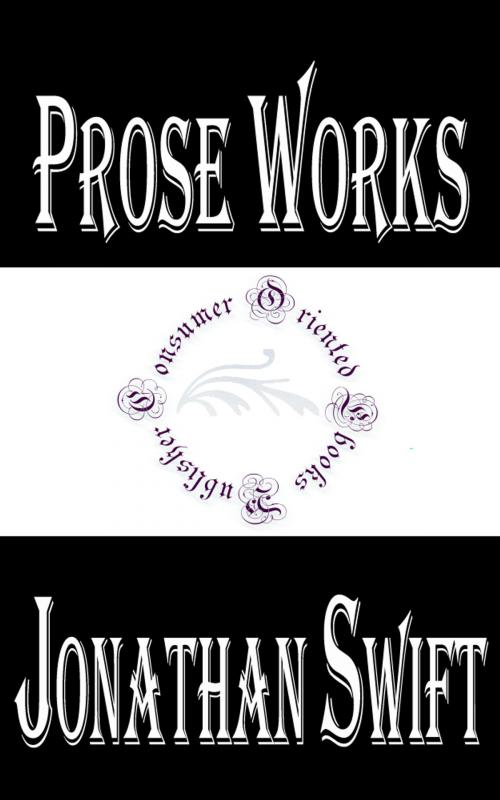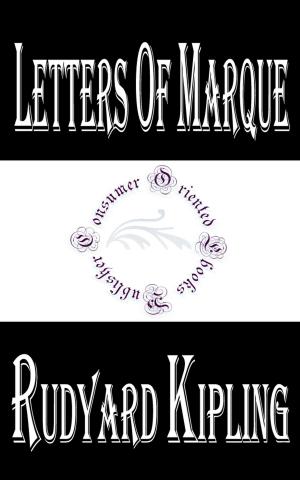Prose Works of Jonathan Swift
Nonfiction, History, Ireland, Social & Cultural Studies, Political Science, Social Science| Author: | Jonathan Swift | ISBN: | 1230000303907 |
| Publisher: | Consumer Oriented Ebooks Publisher | Publication: | February 22, 2015 |
| Imprint: | Language: | English |
| Author: | Jonathan Swift |
| ISBN: | 1230000303907 |
| Publisher: | Consumer Oriented Ebooks Publisher |
| Publication: | February 22, 2015 |
| Imprint: | |
| Language: | English |
Prose Works of Jonathan Swift, Volume 03, 04, 06, 07, 09, 10.
The inquiry into the religious thought of the eighteenth century forms
one of the most interesting subjects for speculation in the history of
the intellectual development of western nations. It is true, that in
that history Swift takes no special or distinguished part; but he forms
a figure of peculiar interest in a special circle of his own. Swift had
no natural bent for the ministry of a church; his instincts, his
temperament, his intellect, were of that order which fitted him for
leadership and administration. He was a born magistrate and commander of
men. It is, therefore, one of the finest compliments we can pay Swift to
say, that no more faithful, no more devoted, no stauncher servant has
that Church possessed; for we must remember the proud and haughty temper
which attempted to content itself with the humdrum duties of a parish
life. Swift entered the service of that Church at a time when its need
for such a man was great; and in spite of its disdain of his worth, in
spite of its failure to recognize and acknowledge his transcendent
qualities, he never forgot his oath, and never shook in his allegiance.
To any one, however, who reads carefully his sermons, his "Thoughts on
Religion," and his "Letter to a Young Clergyman," there comes a
question--whether, for his innermost conscience, Swift found a
satisfying conviction in the doctrines of Christianity. "I am not
answerable to God," he says, "for the doubts that arise in my own
breast, since they are the consequence of that reason which he hath
planted in me, if I take care to conceal those doubts from others, if I
use my best endeavours to subdue them, and if they have no influence on
the conduct of my life." We search in vain, in any of his writings, for
any definite expression of doubt or want of faith in these doctrines.
When he touches on them, as he does in the sermon "On the Trinity," he
seems to avoid of set purpose, rational inquiry, and contents himself
with insisting on the necessity for a belief in those mysteries
concerning God about which we cannot hope to know anything. "I do not
find," he says, in his "Letter to a Young Clergyman," "that you are
anywhere directed in the canons or articles to attempt explaining the
mysteries of the Christian religion; and, indeed, since Providence
intended there should be mysteries, I don't see how it can be agreeable
to piety, orthodoxy, or good sense to go about such a work. For to me
there seems a manifest dilemma in the case; if you explain them, they
are mysteries no longer; if you fail, you have laboured to no purpose."
Prose Works of Jonathan Swift, Volume 03, 04, 06, 07, 09, 10.
The inquiry into the religious thought of the eighteenth century forms
one of the most interesting subjects for speculation in the history of
the intellectual development of western nations. It is true, that in
that history Swift takes no special or distinguished part; but he forms
a figure of peculiar interest in a special circle of his own. Swift had
no natural bent for the ministry of a church; his instincts, his
temperament, his intellect, were of that order which fitted him for
leadership and administration. He was a born magistrate and commander of
men. It is, therefore, one of the finest compliments we can pay Swift to
say, that no more faithful, no more devoted, no stauncher servant has
that Church possessed; for we must remember the proud and haughty temper
which attempted to content itself with the humdrum duties of a parish
life. Swift entered the service of that Church at a time when its need
for such a man was great; and in spite of its disdain of his worth, in
spite of its failure to recognize and acknowledge his transcendent
qualities, he never forgot his oath, and never shook in his allegiance.
To any one, however, who reads carefully his sermons, his "Thoughts on
Religion," and his "Letter to a Young Clergyman," there comes a
question--whether, for his innermost conscience, Swift found a
satisfying conviction in the doctrines of Christianity. "I am not
answerable to God," he says, "for the doubts that arise in my own
breast, since they are the consequence of that reason which he hath
planted in me, if I take care to conceal those doubts from others, if I
use my best endeavours to subdue them, and if they have no influence on
the conduct of my life." We search in vain, in any of his writings, for
any definite expression of doubt or want of faith in these doctrines.
When he touches on them, as he does in the sermon "On the Trinity," he
seems to avoid of set purpose, rational inquiry, and contents himself
with insisting on the necessity for a belief in those mysteries
concerning God about which we cannot hope to know anything. "I do not
find," he says, in his "Letter to a Young Clergyman," "that you are
anywhere directed in the canons or articles to attempt explaining the
mysteries of the Christian religion; and, indeed, since Providence
intended there should be mysteries, I don't see how it can be agreeable
to piety, orthodoxy, or good sense to go about such a work. For to me
there seems a manifest dilemma in the case; if you explain them, they
are mysteries no longer; if you fail, you have laboured to no purpose."















